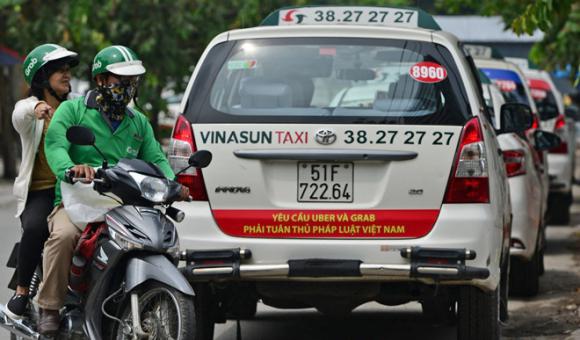Vietnam? Sharing Services, a Controversial Debate02/03/2018
Due to Internet and smartphone usage growth, Vietnam has witnessed a boom in the use of online sharing services on its territory. Grab, Uber, Airbnb and other sharing services are now prospering in the country. The Vay Muon app, for example, is another kind of it and gives the opportunity to its users to borrow and lend money without any intervention of a financial institution. All these services are part of what is called “the sharing economy”, which involves a peer-to-peer sharing of assets or services.
Sharing services do not have the support of all the society. Indeed, they turn out to have a negative impact on more traditional businesses such as taxi companies or hotels since it is very difficult for them to compete with those new services. Some of these companies as Mai Linh, a Vietnamese taxi company, saw their revenue fall significantly and lost a large number of their employees. Vinasun, for example, saw its net revenue increase from over VNĐ1.64 trillion to VNĐ4.25 trillion from 2010 to 2015, while in 2016, it only reached VNĐ4.5 trillion. On the other hand, the financial and hospitality industries seem less affected in Vietnam. It may take longer for these sharing services to have a real impact on them.
However, sharing services are beneficial. Not only can they be an additional source of income, but they also provide consumers with a better experience at a more competitive price. Furthermore, beside the negative impact, sharing services could stimulate companies to cope with the changes and to invest in innovation. Some of them have already launched their own app in an effort to be competitive.
An additional problem is igniting the controversy: the application of the taxation system to these sharing services. Let’s take the example of Grab. Which category does it fall into? Is it an Internet firm, a transportation business or a start up? Local authorities are still trying to understand this new issue. As far as financial security and safety and quality standards are concerned, there are other potential issues surrounding. The first potential issue is the fact that sharing services’ payment system is independent of commercial banks. The second is that, unlike hotels, banks, taxi companies, sharing services lack established codes of behaviour and international standard of service quality.
All things considered, it is indisputable that sharing services are now part of the developing Vietnamese society led by a young, tech-savvy, and growing middle-class population. They are here to stay and traditional firms should adapt to the new paradigm of the digital/crowd-based economy.
Wrapped-up by Borcy, reviewed by Piérart
Sources:
· Vietnam Investment Review, No. 1376. “Sharing services thrive amid criticism.”
· “Uber, Grab rankle Vinasun shareholders.” Vietnam News, http://vietnamnews.vn.

